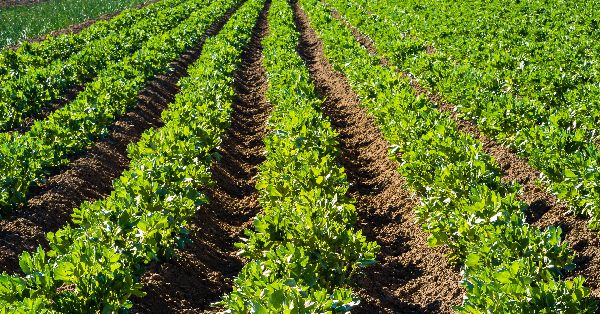
SENTINEL advocates improved food production
An interdisciplinary research project, the Social and Environmental Trade-Offs in African Agriculture (SENTINEL), being funded by the United Kingdom Research and Innovation (UKRI) through the Global Challenges Research Fund (GCRF), is being carried out over the next four years (2017-2021) to address the challenge of achieving food security in sub-Saharan Africa.
The project, which is being implemented by a partnership of 10 organisations in UK and Africa; three African universities / research institutes, including the University of Ghana, Legon (UGL) - Department of Soil Science, one African university network and five UK universities, including the International Institute for Environment and Development (IIED), also aims at conserving the environment and promoting social equity.
A meeting to that effect has, therefore, been held between the Sentinel Ghana Project team and the Ghana National Learning Alliance (GH-NLA) under the Sustainable Agricultural Intensification Research and Learning in Africa (SAIRLA) programme.
A professor at the UGL, Department of Soil Science, Prof. Samuel Adiku, said the meeting was to explore the uniqueness in diversity in the context within which the Sentinel project worked and that of the GH-NLA in promoting agriculture in a sustainable manner.
He said it was also to explore how those areas could be taken forward, considering the time frames involved.
“We know that other groups are also working along similar lines, so instead of sitting in our closets we thought it appropriate to interact with others to increase our synergies and share ideas to see how we can push forward the overall agenda of improving food security without destroying the ecosystem,” he stated.
SENTINEL objectives
A Principal Researcher at the IIED, UK, Dr Barbara Adolph, said Sentinel research focused on three African countries - Ghana, Ethiopia and Zambia - and worked with a wider network of stakeholders and universities across Africa to share lessons and build capacity.
She said the project aimed at enhancing knowledge through co-production of novel scientific research by UK and African researchers, by generating new knowledge on the impacts, risks and trade-offs within and among social, economic and environmental dimensions of different agricultural development pathways that relate to Sustainable Development Goals (SDGs) 2 (improving food security), 10 (reducing inequalities and 15 (ecosystem conservation).
“Sentinel will enhance the capacity of researchers in the UK and Africa to investigate sustainable development challenges using a trans-disciplinary approach. It will also generate new knowledge on the impacts, risks and trade-offs within and among social, economic and environmental dimension of different agricultural development pathways,” she stated.
Sentinel activities so far
A conceptual framework has been co-developed, contextual analysis / scoping studies drafted and peer reviewed in three countries, scenario workshops held and initial scenarios developed, two external advisory group meetings held, three research clusters agreed and work plans for these developed and work on research cluster 1 well advanced, cluster 2 in preparation, cluster 3 just started.
Theory of change
At the impact level, changes in people’s lives (trade-offs are managed to optimise sustainable development benefits (for the poor); changes in practice (provisions for managing trade-offs in agricultural policies and plans are implemented) and changes in policies and plans (agricultural policies and plans are routinely based on an understanding of risks, trade-offs and impact) are expected.
Outcomes expected include changes in policy and planning discourses on the future of agriculture; political support for acknowledging and managing trade-offs; and strategies and operations of NGOs and private sector actors.